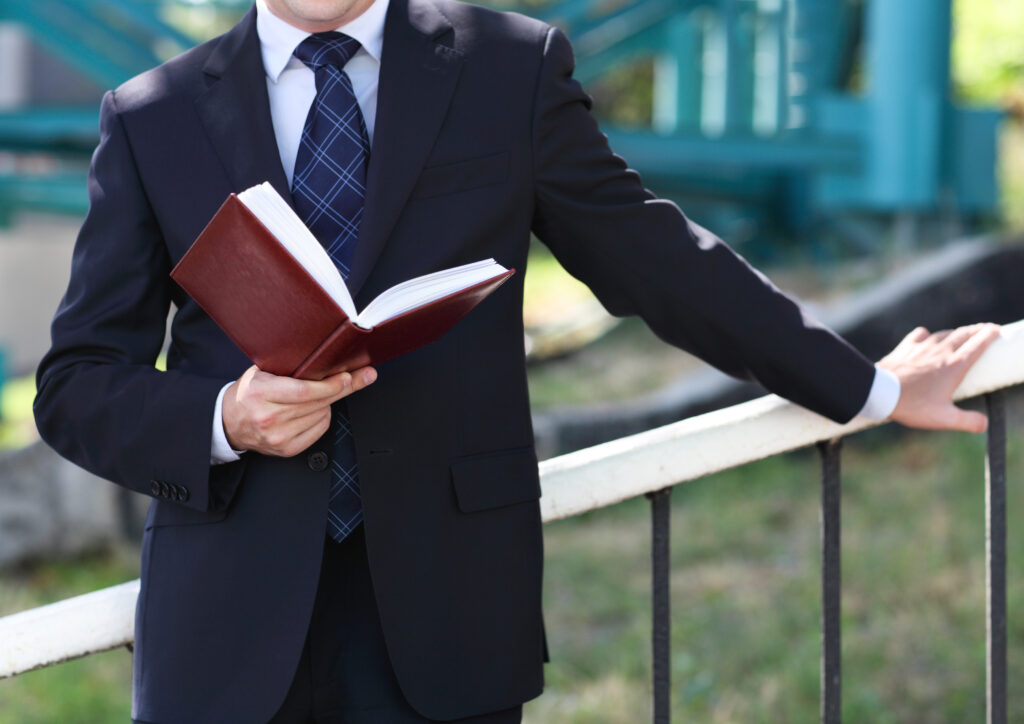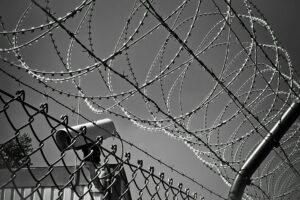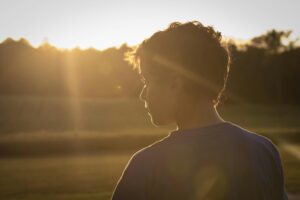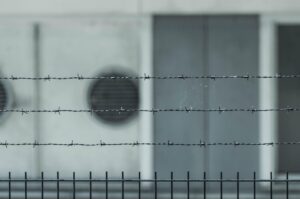The Jehovah’s Witnesses are well-known for keeping to themselves.
They believe Armageddon (the end of the world) is imminent and the establishment of God’s Kingdom on earth is the only solution for all of humanity’s problems. They believe secular society is morally corrupt and under the influence of the Devil, so they limit their social interaction with non-Witnesses.
Because of this, they reject voting, military service and blood transfusions. They reject earthly symbols like flags, love of country and the national anthem.
They “disfellowship” (excommunicate) members who disobey the church Elders or make moral mistakes.
These members are then shunned by their church friends and their own family.
Never spoken to. Never spoken of. They may as well have never existed.
With practices like these, why would they “join” the National Redress Scheme? If a member has been sexually abused, they may be considered “immoral” – so why would they help them, or even acknowledge what happened to them?
In June 2020, the Morrison Government threatened to remove the charity status of institutions who refused to join the National Redress Scheme. Alongside Social Services Minister Anne Ruston, the Prime Minister said their resistance to join the Scheme was “reprehensible” and warned of heavy consequences.
They had until December 31st 2020 to join.
The Jehovah’s Witnesses missed the deadline to join the National Redress Scheme. The church has not made any attempts to join and it appears they aren’t planning on it, either. They won’t be told what to do by any earthly authority.
Instead, they prefer to deal with child abuse allegations internally using what they call the “two witness” rule.
Read on. In this article, we explore the oddities of the Jehovah’s Witnesses and shine a light on the terrible instances of abuse which, to this day, fall on the deaf ears of the church.
The “two witness rule” and cruel questioning of abuse victims
The way Jehovah’s Witnesses deal with allegations of child sexual abuse is appalling.
According to their narrow policies, two witnesses are required to testify before the Elders to establish the perpetrator’s sin. This policy is designed to protect against malicious accusations of sexual assault.
It is not required for both witnesses to have observed the same instance of child sexual abuse to establish guilt. DNA evidence, medical reports, or information from forensic experts or police proving the abuse occurred can also sometimes be accepted as a “second witness”.
However, without mandatory reporting within the church, it’s uncommon for this kind of evidence to be brought forward.
The two witness rule overlooks the seriousness of the initial instance of child abuse. While the Elders are weighing up the evidence and testimonies, the paedophile is allowed to attend Sunday church and midweek meetings unpunished and unreported, potentially abusing other children.
When there is only one witness, the Elders promise to keep a watchful eye over the perpetrator and may even suspend their church duties. Sometimes, the Elders will quietly tell parents not to let their children spend time alone with the individual who has been deemed a “predator”.
You might notice the police have not been brought into the situation. The offender has not been reported. There has not been a formal investigation.
Even worse is how Jehovah’s Witnesses treat possible victims of abuse.
The child is questioned in private by a group of male Elders – often without a parent present, although they are allowed to bring a support person. The victim has to share details about the abuse, which can be re-traumatising in itself, and then the Elders may or may not look into the case further.
They will only look into the case if there is further evidence.
In 2018, the policy was updated so victims could offer testimony in writing, rather than verbally. A small concession, considering the organisation has stated they are not responsible for the “physical protection” of children in the community. They are also considered “spiritual shepherds” and will listen to their story, but they will not provide any kind of comfort, counseling, or therapy.
When a predator is proven guilty, they may be disfellowshipped – but not reported
If there is enough evidence and two reliable witnesses, an internal judicial committee is formed to determine the perpetrator’s punishment.
Option one: the perpetrator is relieved of their duties and any position of responsibility within the church. This happens when the child molester has demonstrated enough “repentance”.
Option two: the perpetrator is disfellowshipped and shunned if they do not repent.
There is no requirement to report the child sexual abuse to the police – even when there is clear evidence, witnesses, and the Elders have deemed the perpetrator guilty. Jehovah’s Witnesses are only required to report allegations of child sexual abuse if the local law says so.
So how does a person repent enough to walk free from child sexual abuse charges?
Through hard work and showing up to meetings.
If the perpetrator attends congregation activities, meetings, and supports the organisation’s door-to-door work, he or she will remain in good standing with the rest of the congregation.
Anyone can show up to a meeting. Anyone can go door-knocking. It doesn’t mean their crimes have gone away and it certainly doesn’t mean they aren’t going to offend again – and yet, it is possible paedophiles still walk among the Jehovah’s Witnesses because they’re in good standing with the congregation.
According to the Royal Commission into Institutional Responses to Child Sexual Abuse, there were 1,800 alleged survivors of child sexual abuse within the Jehovah’s Witnesses. For some perspective, there are less than 70,000 Jehovah’s Witnesses in Australia.
The Royal Commission identified 514 alleged abusers worthy of investigating – and not a single case has been reported to the police by the church.
Since the 1950s, more than 400 members of the church have been disfellowshipped for child sexual abuse. More than half were allowed back.
One of the Elders even admitted to the Royal Commission the hearing notes were then destroyed, so they could not be legally discovered.
Considering the organisation is 150 years old, who knows how many survivors have been passive-aggressively bullied into silence?
“I was told I was wearing improper clothing, I was giving the brothers improper thoughts, it was my fault”
Diane Lynn was a toddler when her parents were converted to the Jehovah’s Witnesses. Her mother was swayed by the promise of a future paradise on earth.
However, Diane’s experience was far from paradise. She was put through hell within the church – she was sexually abused for years and her complaints fell on deaf ears.
After years of sexual abuse by a male member of her congregation, she built up the bravery to tell a traveling overseer.
“When I was about five we had a circuit overseer come to our house and I was brave enough to tell him what was happening. He said he would take care of it, to listen hard at his next talk,” Diane said.
“That weekend he gave a public talk about David and Goliath and how David was just a little boy, but my oh my how he killed that giant, and that was it, that was how he handled it.”
“I just cried my eyes out and I didn’t understand why he didn’t do anything, and it didn’t stop, and the abuse continued.”
Diane was also made to feel like it was her fault the abuse occurred. She was told she was wearing improper clothing and giving the brothers improper thoughts. She was only five years old when she spoke to the overseer.
Her father would share teachings about how sex was consensual if the woman didn’t scream.
Others told her “you can’t bring reproach on Jehovah’s name”, “the congregation is meant to be seen as clean”, and “we’re God’s chosen people”.
Diane stayed with the Jehovah’s Witnesses until she was 35-years-old. For a long time, she couldn’t leave them. She had been taught the world was wicked and she couldn’t trust anyone else.
“And if you leave, you have to leave your family and friends behind and go through it all alone. That’s really hard to face. But I just had to. I couldn’t raise my kids in something like that… if one child is hurt that’s one child too many.”
“I couldn’t have told anyone outside the Jehovah’s Witness organisation because we were taught not to trust them”
Sylvia Marinus had a similar experience within the Jehovah’s Witnesses – except she was sexually abused by her father.
Sylvia was five-years-old when her father started abusing her. Then, he started moving up the ranks within the congregation and eventually became a ministerial servant in her Victorian congregation, deterring Sylvia from reporting his crimes.
She assumed child sexual abuse happened in every home. She didn’t know any different – how could she? Sylvia said herself, she lived a very isolated life with the Jehovah’s Witnesses.
“Even if I had wanted to tell someone about it [the abuse], I couldn’t have told anyone outside the Jehovah’s Witness organisation because we were taught not to trust them and I couldn’t tell anyone inside because of my father’s position.”
When she was an adult, she thought the trauma was over – but then her three-year-old daughter started telling her about things her grandfather had done to her.
Sylvia and her husband took the matter to the Elders, but without two witnesses and a confession, there was seemingly nothing the Elders could do. They did not complete an internal investigation and Sylvia was forbidden from taking the matter any further.
Years later, it came up again.
“We were driving and she told me [about what her grandfather had done] … and I went absolutely hysterical and I got the police involved,” Sylvia said.
“I got a policewoman to the door, she spoke to Clare and said, ‘She’s definitely been abused‘.
“But my ex-husband came home and found the policewoman there and told her to leave. He said that we have our own way of dealing with things and wanted it dealt with within the organisation.”
“We went to the elders and had a big discussion with them and nothing happened. I was told to keep it to myself. Another elder in the congregation who I tried to pursue said ‘You’ve gotta keep it quiet and pretend you still love your father’.”
Sylvia then took matters into her own hands. She left the congregation, leaving her friends and family behind, and made a formal complaint to the police. Her father was found guilty of child sexual abuse and received a 12 month suspended sentence.
Sylvia wrote to the Elders to have her father disfellowshipped, but they ignored her.
Her daughter later died when she was just 17-years-old. She had a seizure at home and unfortunately, she did not survive.
“I found out as an adult that if I wanted to get help for the abuse, I would have to lose my connection to my family and my community — but I’ve become strong and I’ve got a voice.
“And even though my daughter’s not around anymore, she knows I care.”
“Remember, Dear Sister, gossip is like a pillow with feathers in it: once you break it open, you can never get all the feathers back in again”
It wasn’t just the girls who faced the threat of sexual abuse within the church. In June 2020, a former Jehovah’s Witness named Steven Unthank told The Project he was abused by an Elder of the church when he was 12-years-old.
“He rose through the ranks in Australia to become one of the leaders. Straight after the abuse, my local body of elders wanted to meet with me. I thought they knew about it and were going to help me. I hadn’t told anybody at that point. But it wasn’t about that… I’d been accused of smoking cigarettes,” he said.
Similarly, Simon Philpot was allegedly abused by a member of his congregation. The Elders approached his mother and said “remember, Dear Sister, gossip is like a pillow with feathers in it: once you break it open, you can never get all the feathers back in again.”
His mother immediately went to the police, which led to their entire family being disfellowshipped.
“I would just appreciate an apology and them admitting to sexual abuse in the church,” Simon said.
“Personally it would help me with closure over decades of my life,” Steven added.
Child abuse survivors say the church is still ignoring them after taking matters in house
The Jehovah’s Witnesses have repeatedly refused to join the National Redress Scheme, opting to deal with allegations of child sexual abuse in-house.
In June 2020, the Jehovah’s Witnesses released a statement saying they would “respond directly to individual claims for redress in a caring, fair and principled manner, taking into consideration the unique circumstances of each claim.”
However, many alleged victims say they are still being ignored by the church.
One survivor named Lara Kaput emailed the church in September 2020 asking for an application form for childhood sexual abuse redress. Previously, she had made a submission to the Royal Commission into Institutional Responses to Child Sexual Abuse and she met their terms of reference, which she highlighted in her email to the Elders.
Lara says she still hasn’t received a response from the church.
“As a child, I was sexually abused by a man I was introduced to within the Jehovah’s Witness meetings. I wish to accept your public offer of redress for my child sexual abuse within the Jehovah’s Witnesses,” she wrote.
“We spent all this money on the royal commission, it took such a long time, we got the results, now there’s nothing.”
Lara was only 13-years-old when she was groomed and assaulted by a fellow member of the church. He was a family friend and someone she looked up to.
It took her 31 years to open up about what happened to her and it took the form of a submission to the Royal Commission. Lara says she CC’d her parents into the email to the church and it was the first time they had heard anything about it.
She says she knows other victims are too scared to apply for redress.
“The Jehovah’s Witness survivors are waiting in the wings, they’re terrified, they’re broken, they’re hoping the government will see them this time and do something about it.”
Get the justice you deserve with Kelso Lawyers. We want to hear your story. Call (02) 4907 4200 or complete the online form before you accept payment from the National Redress Scheme.
Feature Image: Envato




